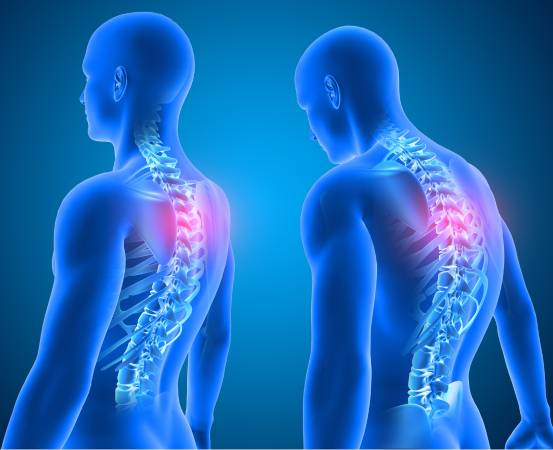
Two years ago, a 78-year-old man visited a Hyderabad hospital with low blood pressure (BP), light-headedness and giddiness. After close examination, doctors diagnosed him with Addison’s disease, a condition in which the adrenal glands don’t produce enough hormones.
Ageing can cause hormonal fluctuations. While some hormones tend to rise, others decline in production.
The decline is largely due to the reduction in the size of the glands that produce the hormones, says Dr Sandeep Ghanta, consultant internal medicine, Citizens Speciality Hospital, Hyderabad. But he points out that this biological mechanism is a natural part of the ageing process.
READ MORE :
How to keep the elderly brain healthy
Hearing loss among elderly: better communication can help
How older people can keep arthritis pain in check in winter
Hormones typically start to decline when a person is around 50-60 years old. Two common examples of hormonal imbalance-induced conditions are diabetes (when the body does not produce enough insulin or when there is insulin resistance) and menopause (when the body’s production of estrogen and progesterone goes down).
Apart from the decline in the production of hormones, when the body ages, the target organs could also become less sensitive to the hormones.
The hormones that dip
Plummeting hormone levels can cause low immunity. This can make the elderly prone to auto-immune conditions including thyroid issues and diabetes. Some of the hormones that see a decline with advancing years are:
Cortisol
It is the primary stress hormone that regulates the body’s response to stress. This hormone also increases metabolism, reduces inflammation and controls blood pressure. A decline in the production of this hormone can cause stress, low blood pressure and tiredness.
The 78-year-old man often felt dizzy and developed walking difficulties and balance issues due to hypotension (low blood pressure) induced by cortisol deficiency. Cortisol is one of the three hormones secreted by the adrenal glands. The other two are aldosterone and adrenaline. Dr Ghanta, who treated him, says that he was put on corticosteroids (an anti-inflammatory drug) after which his hormone levels improved and symptoms got better. Gradually, his BP also stabilised.
Aldosterone
This hormone is essential in regulating blood pressure. A dip in the hormone can lead to an electrolyte imbalance which can cause giddiness, light-headedness and a drop in blood pressure.
Growth hormone (GH)
Growth hormone is responsible for bone and muscle growth in children. In adults, it is essential for maintaining metabolism and the general body structure. Dr Ghanta points out that when GH declines there could be a reduction in muscle strength and muscle mass. This can lead to weak and flabby muscles.
Estrogen and testosterone
A dip in the level of estrogen and progesterone could cause heart-related issues and osteoporosis. Apart from that, a decline in estrogen could cause menopause in women and a dip in testosterone could cause andropause in men.
Some hormones rise
While some hormones fall, there are other hormones that can rise in older adults.
Dr Madhavi Thuyamani, consultant, palliative medicine, Aster CMI Hospital, Bengaluru, “Hormones like the follicle-stimulating hormone [FSH] and the luteinizing hormone [LH] increase with age.” Both these play a crucial role in the functioning of the male and female reproductive organs.
“An increase in FSH and LH affects women more than men. It leads to a white discharge from the uterus, uterine bleeding even after attaining menopause, depression and weight gain,” says Dr Ghanta. He points out that the other hormone that increases with age is the parathyroid hormone. The parathyroid hormone can cause calcium to be released from the bones into the blood, and this can decrease the strength of bones and increase the risk of osteoporosis.
Hormonal fluctuation: is there a solution?
Dr Ghanta says that one cannot fully regulate hormonal imbalances in the elderly. “But you can try to change the end factors like low immunity, cardiac issue and diabetes by following a healthy lifestyle.”
In extreme cases, doctors recommend hormone replacement therapy (HRT). But according to experts, there are natural ways to manage the effects of hormonal changes. Some of them include:
Exercising regularly
Exercises like walking or jogging keep the body active and help reduce hormonal imbalances.
Eating healthy food
People should be mindful of what they eat. Elderly people should avoid junk food and include vitamins, minerals and a good amount of Omega 3 fatty acids in their diet. Omega 3 fatty acids include fish, walnut, soybeans, black seeds and chia seeds. After consulting with a doctor, they could also take calcium and vitamin D supplements.
Following sleep hygiene
Like everyone else, older adults also need to maintain good sleep hygiene.
Dr Ghanta says that not getting adequate sleep or spending time in front of the screen just before going to bed could cause stress on the body and this can increase the levels of cortisol. He points out that cortisol has a diurnal pattern – the secretion of the hormone is more in the morning and low in the evening and night when the body is relaxed. So, when cortisol increases at night, it will put the body in the fight or flight mode and increase alertness. This can cause disturbances in the sleep-wake cycle.
Managing stress level
Stress has a direct impact on hormones. One must adopt a healthy lifestyle and cut down on alcohol and avoid smoking and other tobacco products.
Takeaways
- Decline of hormones is a natural process. As the person ages, the amount of hormone that is produced from the source decreases. The target organs might also become less sensitive to the hormones.
- Some hormones could rise with age.
- Regular physical activity, proper sleep, eating healthy food and managing stress levels can help the ageing population deal with hormonal changes.

















